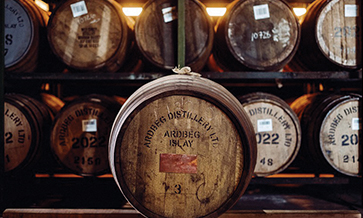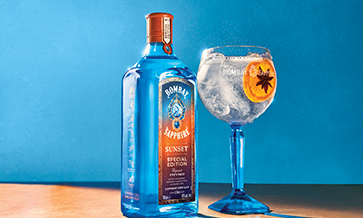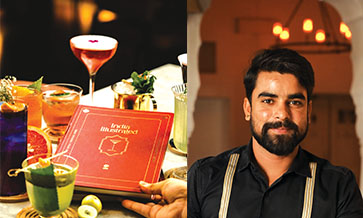The International Spirits and Wines Association of India (ISWAI) recently commissioned the global research agency, IPSOS, to conduct a market survey to assess shopper experience and perceptions at high-end premium liquor stores in India.
The survey gleaned interesting insights into transforming buying experiences of alcoholic beverages (alcobev) with the growth of premiumisation across key regions in the country.
Key trends that will shape the industry’s future emerged from the survey. These include a higher propensity for women to visit premium outlets; and women stepping into liquor stores more than ever before on the back of premiumisation.
The survey found that while just 2% of women shoppers visited regular stores, premium stores witnessed 10% women visiting and shopping for their preferred brands. The growth stems from the safety and comfort that premium liquor stores offer, making women feel independent enough to browse for premium brands and shop for them on their own.
Better ambience
A safe and inviting environment is also encouraging men and women to spend more time at premium stores, basking in the shopping experience. It is not about thirst, but experience and experiment at premium outlets.
Unlike regular liquor stores, premium stores allow patrons to enter the pleasantly designed outlets and browse through the aisles to pick up their preferred drinks.
The survey revealed that 23% men are accompanied in a premium store and 63% are alone. In regular stores 27% men come accompanied and 72% are alone.
On the other hand, with a better environment, 63% women walk into premium liquor stores alone, while only 37% are accompanied. Another 43% of shoppers visiting in groups browse and experiment at liquor stores.
The study found that individuals in the age group of 31-40 years are driving the experimentation and browsing trends, with 54% shoppers enquiring about products.
Shoppers were found to be more explorative while visiting in groups (43%) vis-à-vis those visiting alone (29%).
In terms of drinks that are piquing customer interest, the data pointed towards beer and rum, which attracted the maximum browsing and interaction during non-peak hours. About 35% more shoppers interact with retailers at premium stores as opposed to regular ones.
With premium stores offering a greater number of high-quality, sought-after brands, it is not surprising that the survey found a higher offtake of premium (whiskey 18 % and beer 34%), compared to regular outlets (whiskey 5% and beer 18%).
The data also pointed towards 200% growth in spends at premium stores –women average Rs. 702 on a single purchase, as compared to Rs. 468 among men.
Demographic trends
Delving into the demographic trends unlocked by premium liquor stores, the survey unveiled interesting insights. In premium stores, 19% of shoppers are above 41, while 14% are above 50 years.
Comparatively, regular stores witness 16% shoppers above 41 years and 4% over 50.
The trend replicates itself across Delhi, Gurugram, Mumbai, Lucknow and Bengaluru, where shoppers in the 40+ age bracket frequent premium liquor stores more than regular ones.
This indicates that premium liquor stores are attracting mature, affluent shoppers who analyse brands and prefer making informed decisions around alcobev purchases.
Speaking on the survey, ISWAI’s CEO, Nita Kapoor said, “Premium liquor stores are driving the trends of browsing and experimentation in the alcobev industry, leading to the key message of ‘Drink Less, Drink Better’.
“As evidenced by the survey, more shoppers, including women and higher age groups, prefer premium stores on the back of elevated experience, perception, ease of navigation, and safety,” she added.
Bigger market
Weekdays and non-peak hours witness an uptick in browsing as relaxed shopping takes place during these hours.
The number of people consuming liquor in India is projected to increase from 29.3 crores in 2018 to 38.6 crores in 2030. With greater and better variety and room for experimentation at premium stores, premiumisation of liquor stores will continue to unlock interesting trends in this space.
ISWAI is an apex body promoted by multi-national alcoholic beverage companies having investments and business operations in India. Formed in 2004, ISWAI leads a focused effort to highlight the industry’s perspective on government policy, best practices, and responsible use of beverage alcohol products.
Members of ISWAI include global leaders in both the spirits and wine industries: Bacardi, Beam Suntory, Brown Forman, Campari, Diageo-United Spirits, Moet Hennessy, Pernod Ricard and William Grant & Sons.
Together its members account for a substantial part of the revenue generated from alcoholic beverages across the country.














